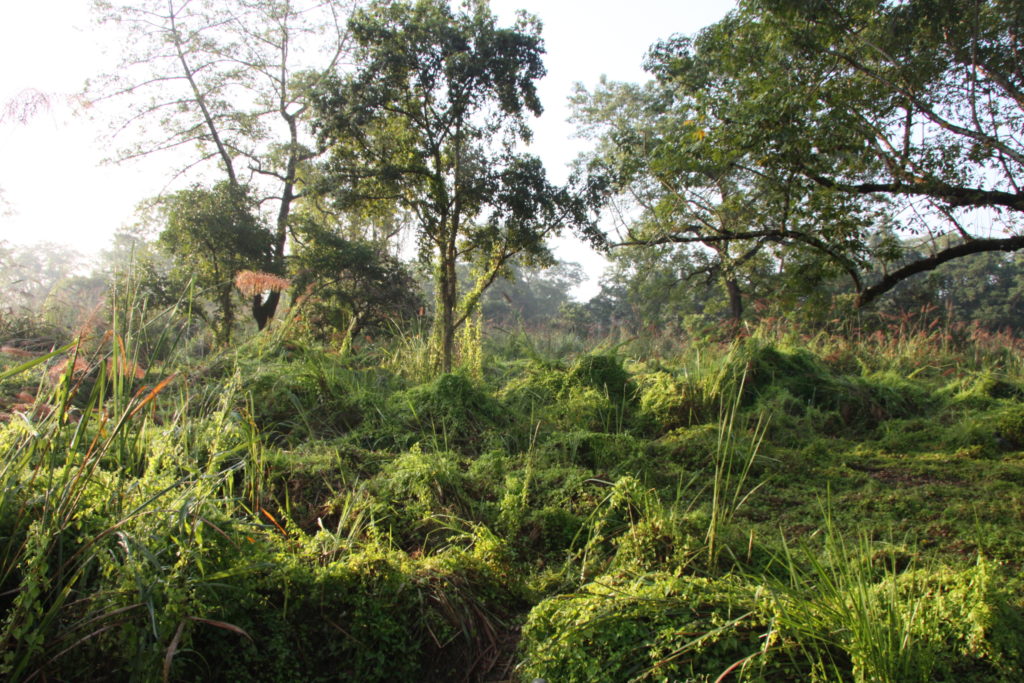Emerging contaminants – a growing concern?
[Image credit: minthu] Over the last 200 years, the global population has been growing at an exponential rate and according to the UN, is predicted to reach 8.5 billion by 2030. The population increase to date, has been supported by the development of agricultural, industrial and health care resources, which has led to the rise…
How Genetically Modified Organisms (GMOs) Enter the Food Chain in non-GMO Producing Countries
How Genetically Modified Organisms (GMOs) Enter the Food Chain in non-GMO Producing Countries - by Tatjana Brankov A superficial review of the legislation on transgenic foods and feeds indicates that consumers in non-GMO producing countries consume GMO-free food. However, less attention is paid to the fact that GMOs can enter the food chain through the import of transgenic foodstuff and feedstuff or by contamination. In some countries, transgenic food production is fully equal to conventional production. The concept of substantial equivalence, developed by the OECD and further elaborated by FAO/WHO “embodies the concept that if a new food or food component is found to be substantially equivalent to an existing food or food component, it can be treated in the same manner with respect to safety, i.e. the food or food component can be concluded to be as safe as the conventional food or food component” (FAO/WHO 1996). Such a…
CABI board member Paulus Vershuren explains how CABI is delivering on SDG17: Partnerships for the Goals
[youtube https://www.youtube.com/watch?v=KjrI0hkWTZ4?feature=oembed] The world we live in today faces complex and interconnected challenges that individual organisations alone cannot easily resolve. When the scale of the challenge is global, organisations must find ways of strengthening their partnerships and coming together to find the best and most sustainable solutions. This is why partnerships are at the…
CABI board member Dr Prem Warrior explains how CABI is delivering on SDG15: Life on Land
[youtube https://www.youtube.com/watch?v=F50tEAWounM?feature=oembed] CABI helps prevent, detect and limit the impact of invasive species by training government officials about the way they arrive and spread, supporting early detection and removal, and advising on natural, sustainable control (biocontrol) and pest management. By conserving biodiversity and ecosystems, we're improving the preventing and management of invasive species.
CABI board member Professor Dame Anne Glover explains how CABI is delivering on SDG12: Responsible Consumption and Production
[youtube https://www.youtube.com/watch?v=pJ1OqUUhwTY?feature=oembed] In future, farmers will need to produce more food from fewer resources. They will also need to significantly reduce crops losses. But without the right information, farmers cannot easily introduce new, highly productive and sustainable ways of farming. Sustainable production is central to CABI's work. We promote resource efficient farming and help farmers…
Irrigation facilities to enhance all year seed supply by farmers in central Uganda
Lack of access to quality seed, particularly of traditional crops that are not well integrated into the formal sector, remains a key challenge for increased productivity of these crops in African farming systems. CABI, working with national and regional partners, aims to strengthen seed systems in Africa through developing farmer seed enterprises and linkages to…
CABI board member Roger Horton explains how CABI is delivering on SDG4: Quality Education
[youtube https://www.youtube.com/watch?v=RAQdE3PRzf8?feature=oembed] Sharing scientific agricultural and environmental information helps people tackle global challenges like food security. CABI creates resources that give access to science-based information on agriculture and the environment. Our mission is to improve people's lives worldwide by sharing knowledge. As a scientific publisher we produce materials for academics and researchers that make…
World Soil Day 2017 – “Caring for the Planet from the Ground”
[Image credit: FAO] “Caring for the Planet from the Ground” is the theme of this year’s World Soil Day (#worldsoilday). World Soil Day (WSD) is an annual campaign aimed at raising awareness of the critical importance of healthy soils and advocating for the sustainable management of global soil resources. In June 2013, the…
Why biological control is an important tool to manage problematic invasive species in Europe
Over the last few years, biological invasions have become a regular topic in the news. Today the general public is probably better informed about the negative environmental and economic impacts alien invasive species can cause than ever before. However, concern about invasive species and the search for methods to sustainably manage them has a much longer history, dating back to the 19th century



